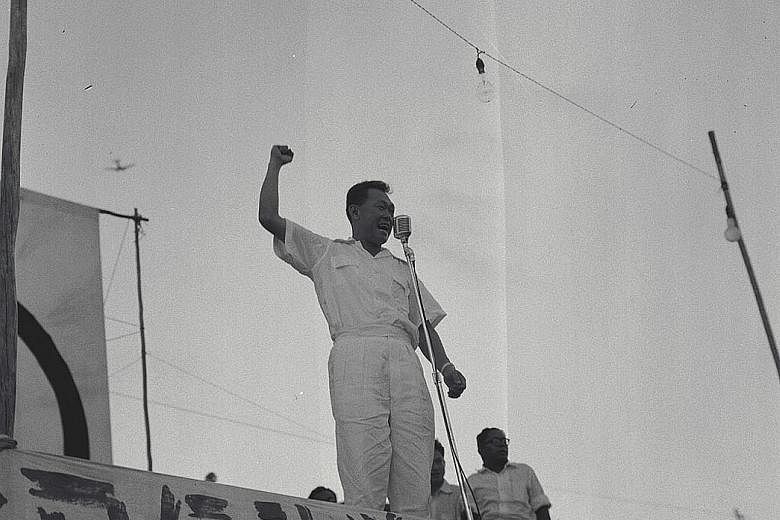Following the Singapore Citizenship Ordinance of 1957, the first legislative assembly general election was held in 1959.
The elections would usher in an era of self-government.
For the first time, every legislator would be directly elected by voters. The 1957 ordinance also meant a fully enfranchised population, or universal suffrage.
In the previous elections, in 1955, Britain appointed seven of the 32 members of the legislative assembly. The remaining 25 members were elected by British subjects in Singapore, who made up only half of all adults here then.
Others living here were not British subjects because they were not born in Singapore, or could not speak English, or could not afford the legal fees involved in applying to be a subject.
The left-leaning People's Action Party (PAP), founded by Mr Lee Kuan Yew and others in 1954, had won three of the four seats it contested in the 1955 elections. In 1959, it decided to contest all 51 seats.
Mr Lee wrote about the 1959 elections in his 1998 memoirs: "This election would be the first test of public opinion. The electorate had increased tenfold since 1951 to about 500,000 after the Citizenship Ordinance was passed in October 1957."
The PAP won in a shock landslide, taking 43 of 51 seats. Mr Lee became Singapore's first prime minister, and the PAP has held power ever since. The Singapore People's Alliance, the party led by Mr Lim Yew Hock, who had been chief minister until the 1959 elections, won just four seats.
The impact of the 1957 ordinance on the 1959 elections was significant. The electorate was enlarged. But, more importantly, the new voters were predominantly working-class and Chinese-speaking.
This meant voters were much more left-leaning, radical and anti-British, because many of them blamed the colonial system for being exploitative, says Professor Tan Tai Yong of the Yale-NUS College. This placed Mr Lim's party at a disadvantage, as it was seen as too close to the British.
The PAP won over the electorate because of its socialist positions and its co-opting of Chinese-speaking union leaders Lim Chin Siong and Fong Swee Suan, who could mobilise the Chinese masses.
Says historian Sikko Visscher: "Without the 1957 ordinance... the PAP would have been much more inclined in its early years to have been dominated by, and oriented towards, the perspective and concerns of the English-speaking and educated."
The ordinance also necessitated Mr Lee's famous strategy of "riding the Tiger", he notes, referring to cooperating with leaders that he knew probably had communist links, so as to win the elections.
Elgin Toh


